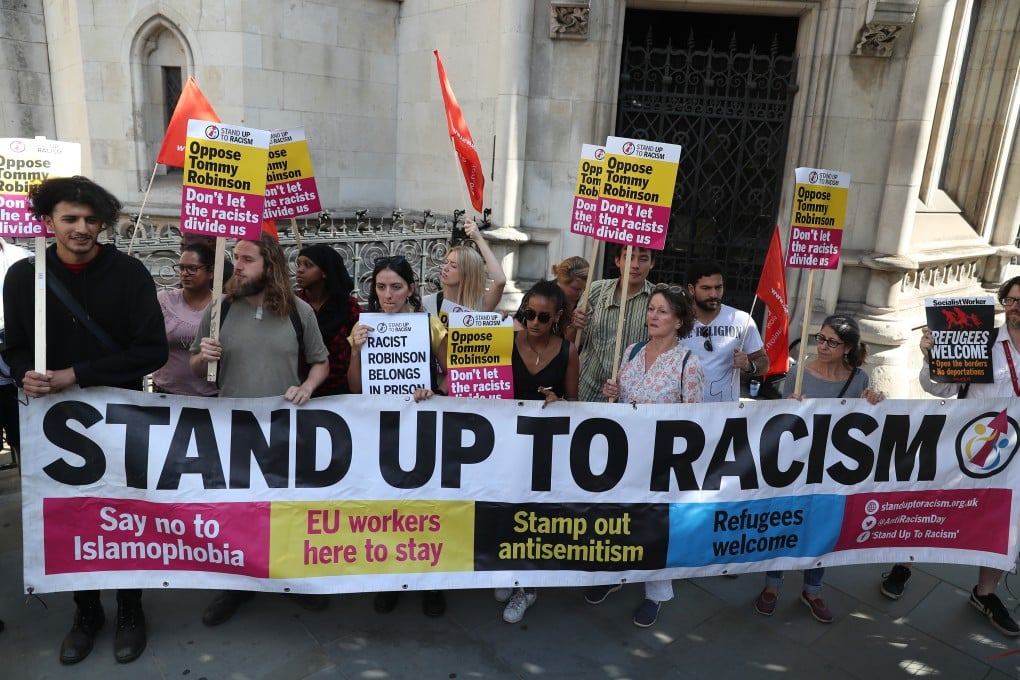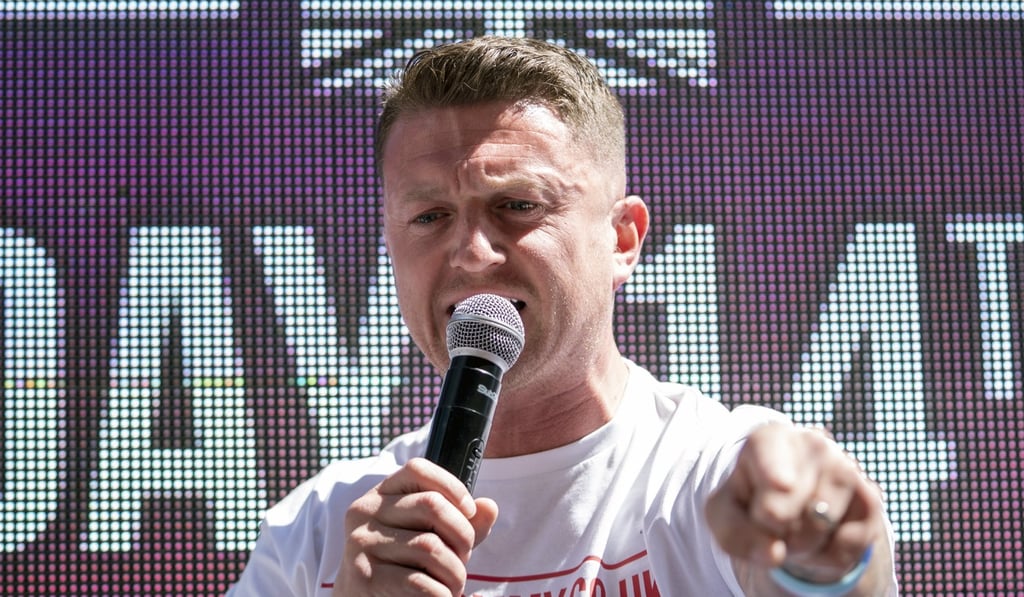Racism on the rise in UK since Brexit vote, study reveals
- Survey shows 71 per cent of people from ethnic minorities faced discrimination, up from 58 per cent

Ethnic minorities in Britain are facing rising and increasingly overt racism, with levels of discrimination and abuse continuing to grow in the wake of the Brexit referendum, new nationwide research reveals.
Seven in 10 ethnic minority people now report having faced racial discrimination, compared to 58 per cent before the EU vote in January 2016, according to polling data seen by The Guardian.
It comes amid rising concern at the use of divisive rhetoric in public ahead of this week’s European parliament elections, where some leading candidates, including UKIP’s Carl Benjamin and independent Tommy Robinson, have records of overt racism.
The survey by Opinium suggests racists are feeling increasingly confident in deploying overt abuse or discrimination.
The proportion of ethnic minorities saying they had been targeted by a stranger rose from 64 per cent in January 2016 to 76 per cent in February this year, when the most recent polling was carried out of 1,006 people weighted to be nationally representative.

The trend appears in line with crime figures, which have shown that racially motivated hate crime has increased every year since 2013, doubling to 71,251 incidents in England and Wales in 2018, according to the Home Office.
David Lammy, the Labour MP for Tottenham and a leading anti-racism campaigner, described the findings as “alarming”, while Omar Khan, the chief executive of the Runnymede Trust, a race equality think tanisk, said it was now clear that Brexit, while not the source of racism, had led to higher levels being expressed and that social media was “normalising hate and increasing division”.